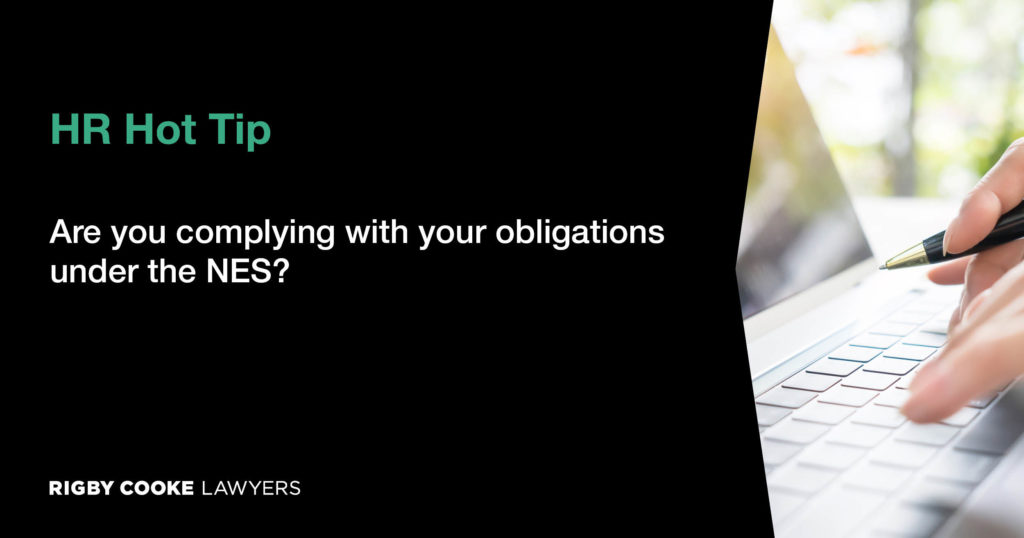Welcome to our series of HR interviews with Lawyer Monika Nosal who answers some of the most common questions asked by HR managers regarding employees’ legal entitlements.
The National Employment Standards (NES) are 10 minimum employment entitlements that must be provided to all employees in the national workplace relations system (however only certain entitlements apply to casual employees).
The 10 entitlements in summary are:
- maximum weekly hours of work
- requests for flexible working arrangements
- parental leave and related entitlements
- annual leave
- personal/carers leave, compassionate leave and unpaid family and domestic violence leave
- community service leave
- long service leave
- public holidays
- notice of termination and redundancy pay
- provision of a Fair Work Information Statement.
All employees in the national workplace relations system are covered by the NES regardless of the applicable modern award, registered agreement or employment contract.
To ensure compliance with the NES, we recommend employers:
- familiarise themselves with the NES
- review (and if necessary, update) employees’ employment contacts (with employees’ consent)
- review (and if necessary, update) existing policies and procedures
Employers who fail to properly understand their obligations under the NES, and as a result deny employees their minimum entitlements, may find themselves subject to regulatory action or legal claims from employees.
Employers obligations under the NES, modern awards, enterprise agreements and contracts can be complex, overlapping, and at times confusing.
Employers need to familiarise themselves with and understand their legal obligations in order to avoid any possible claims by employees (both existing and former) and unsuccessful job applicants, as well as prosecution by the Fair Work Ombudsman. Under the accessorial liability provisions of the Fair Work Act 2009 (Cth), employers and individuals such as directors and HR managers can be personally held accountable for breaching workplace laws in certain circumstances.
A HR Legal Audit conducted by Rigby Cooke can provide the HR function and, in turn, provide employers with comfort in knowing that they are legally compliant, or at least provide advance warning of any potential compliancy issues before they become problematic.
| Disclaimer: This publication contains comments of a general nature only and is provided as an information service. It is not intended to be relied upon as, nor is it a substitute for specific professional advice. No responsibility can be accepted by Rigby Cooke Lawyers or the authors for loss occasioned to any person doing anything as a result of any material in this publication.
Liability limited by a scheme approved under Professional Standards Legislation. ©2020 Rigby Cooke Lawyers |

